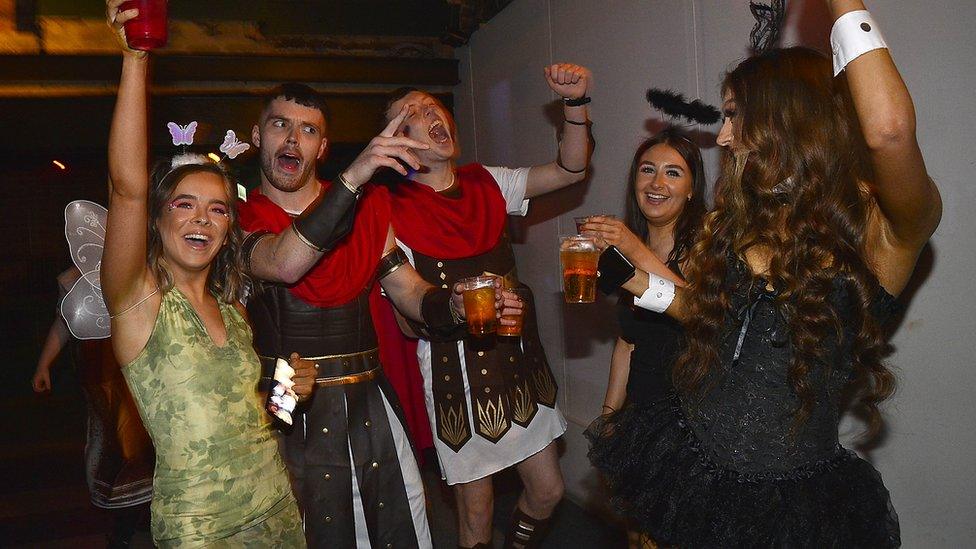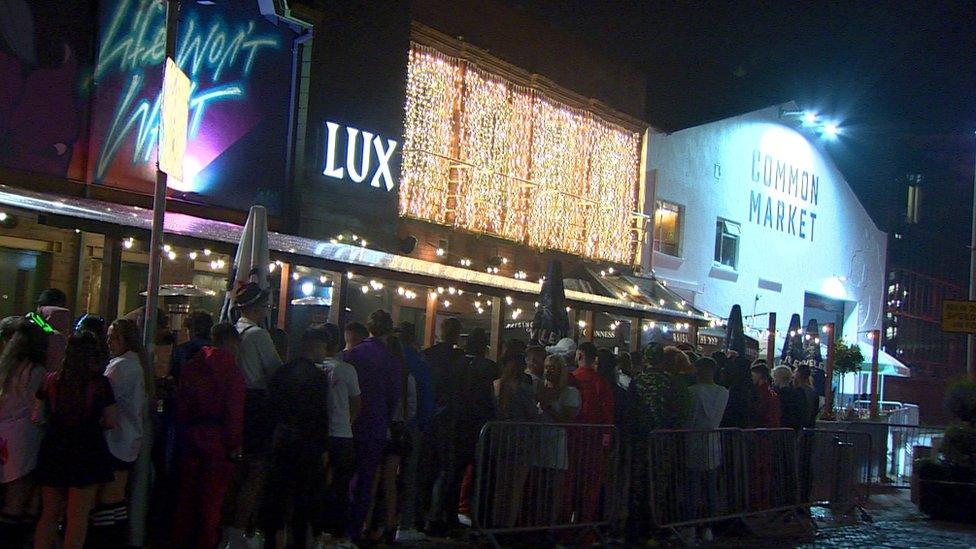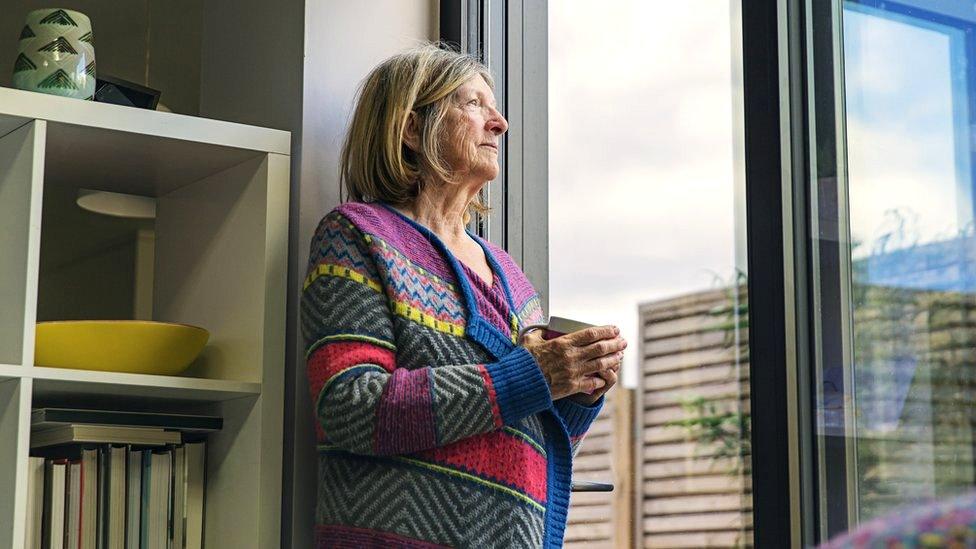Covid-19: Nightclubs reopen in Northern Ireland as restrictions ease
- Published

Revellers in Belfast partied as nightclubs reopened for the first time since March 2020
Nightclubs in Northern Ireland reopened on Sunday as some remaining coronavirus restrictions imposed last March were lifted.
The hospitality sector is expected to be busy on Halloween night, with legal requirements on social distancing also being scrapped.
Ministers want people to be sensible and exercise personal responsibility.
Customers do not have to wear face coverings when they are eating, drinking or dancing in clubs.
First Minister Paul Givan said: "We ask everyone to keep following the public health advice - the responsibility lies with each of us to protect ourselves, our families and the whole community."
Deputy First Minister Michelle O'Neill said: "This latest set of relaxations must go hand in hand with the necessary mitigations and personal behaviours that will help to manage risks as people socialise together."
What is changing?
On 7 October, Stormont politicians agreed that social distancing rules in hospitality venues could be removed from 31 October.
The scrapping of 1m (3ft) distancing also meant nightclubs were able to reopen their doors and restrictions banning dancing in those venues have now been removed.
People are also be able to move around venues and stand to have a drink or eat food.
Customers do not have to wear face coverings when they are eating, drinking or dancing.
However, last week the Alliance Party's Justice Minister Naomi Long said she was concerned the move could lead to a "significant" rise in transmission of the virus.
It is understood advice from health officials supported the decision taken, arguing that dancing is a "strenuous" activity for which face coverings are not recommended.
What about vaccine certification?
People are not yet required to show proof of vaccination to enter nightclubs in Northern Ireland.
In Scotland and Wales, vaccine passports are required for entry to large events and nightclubs .

There was a long queue at Lux nightclub in Belfast on Sunday evening
In the Republic of Ireland, the rule is in force for access to all hospitality, and tickets to nightclubs must be pre-booked.
The Stormont executive has yet to decide whether to deploy a compulsory system, which is being developed by the Department of Health.
At present, it is guidance that venues and event organisers ask people to demonstrate either:
proof of full vaccination for more than two weeks
proof of a negative PCR or lateral flow test taken within 48 hours of entry
proof of a positive PCR test for Covid-19 within the previous 180 days
Some venues are voluntarily implementing the measures.
The Alliance Party and the SDLP have publicly called for mandatory vaccine certification to be introduced now but other parties remain reluctant to do so, saying they would prefer it remained up to businesses to manage themselves.
Is there a concern about this winter?
On Thursday, Sinn Fein's Finance Minister Conor Murphy said he did not expect that Northern Ireland will be placed under a Covid-19 lockdown in the coming months.
But the executive did publish its autumn/winter contingency plan for coronavirus this month.
Mr Givan said face coverings would remain mandatory in certain indoor settings into next year.
He said other measures under consideration if cases rise sharply or hospital pressures increase were the possible use of mandatory vaccine certification, strengthening self-isolation rules for close contacts of those who contract the virus, and a "re-imposition" in law of social distancing in certain settings.
- Published7 October 2021

- Published26 October 2021

- Published28 October 2021
